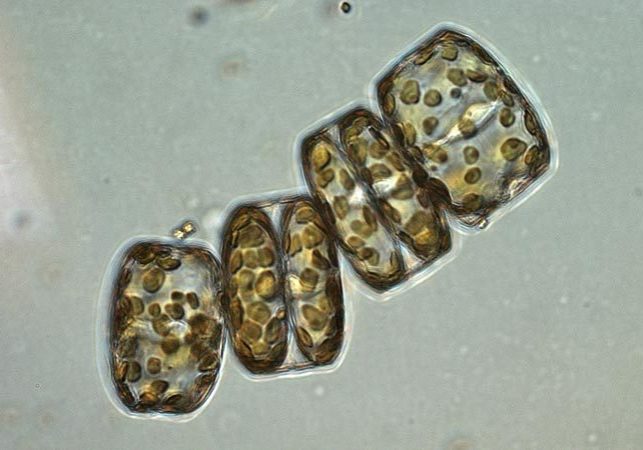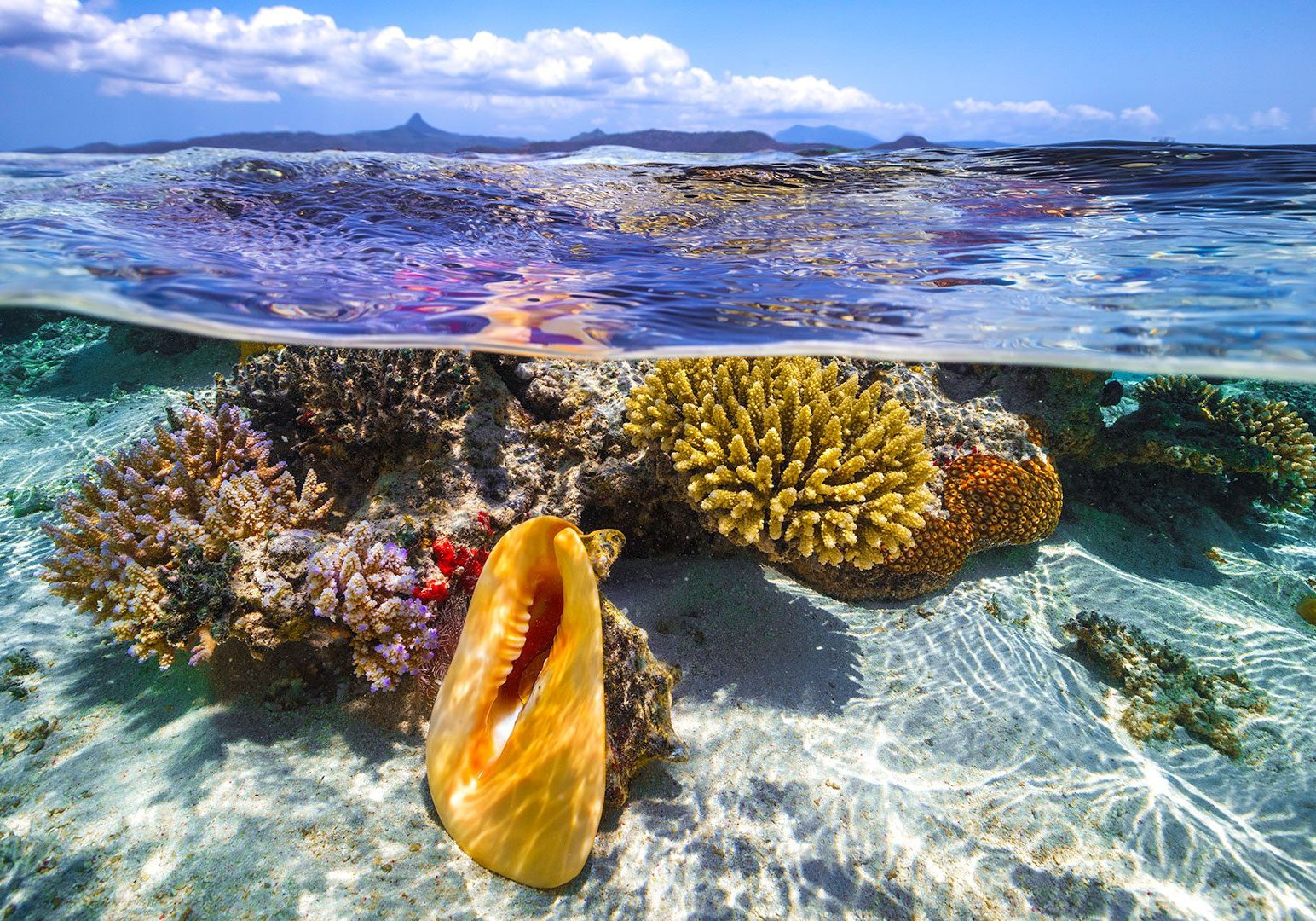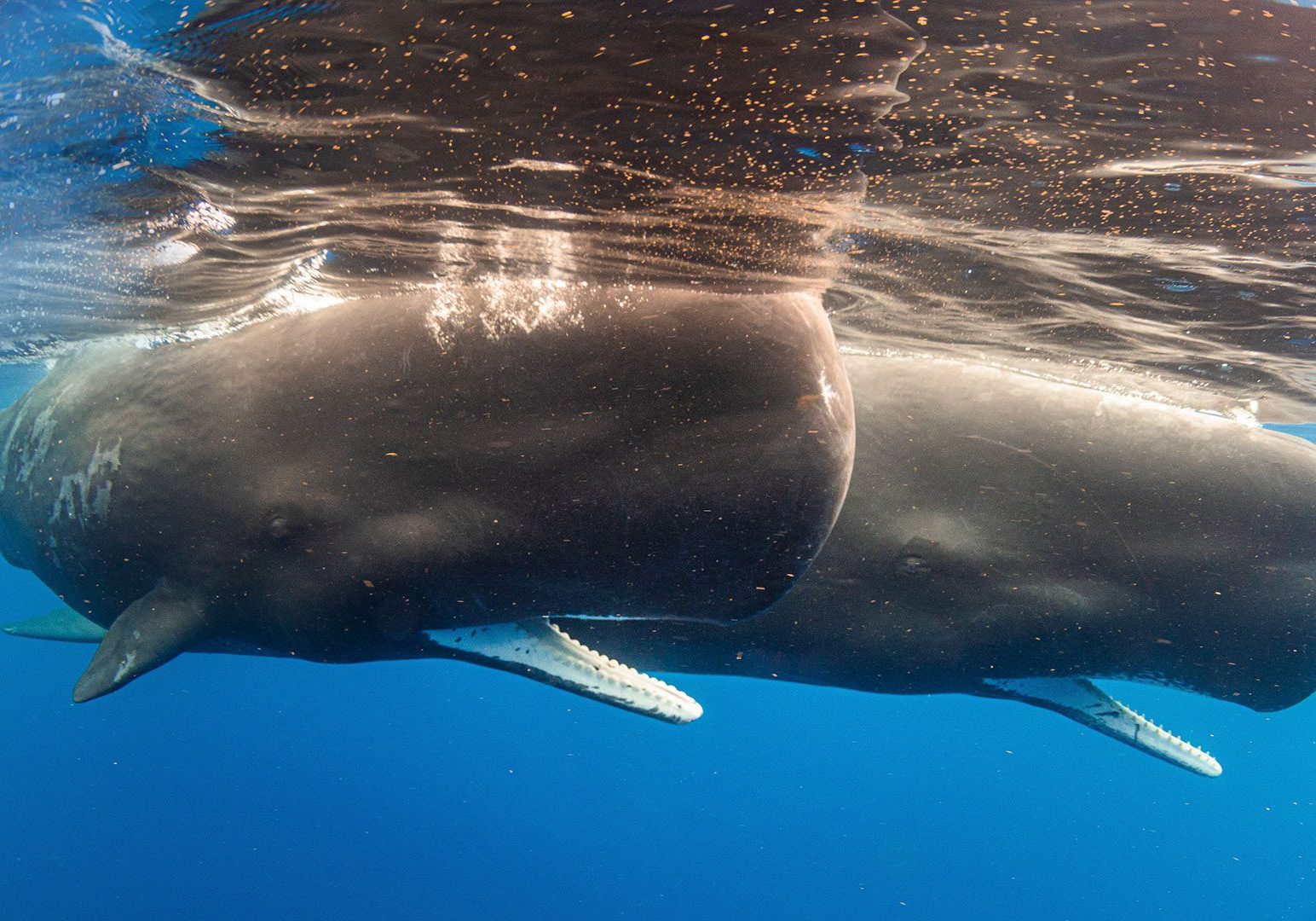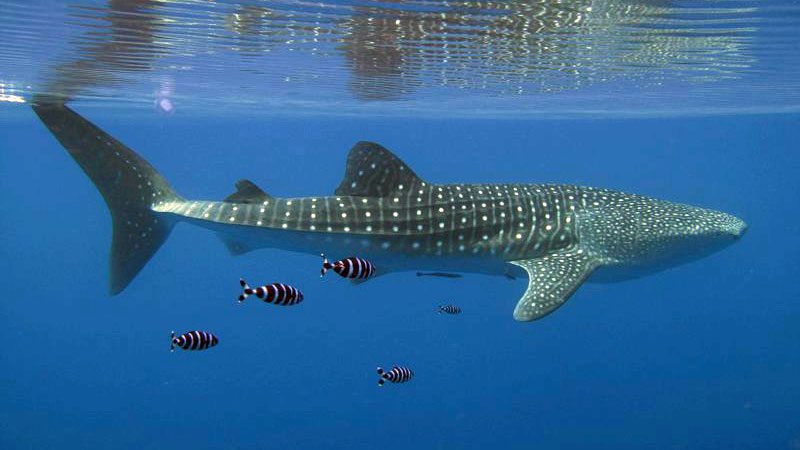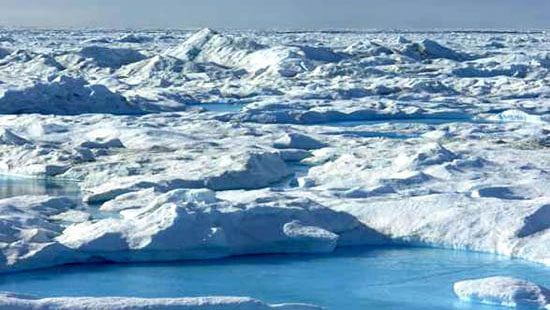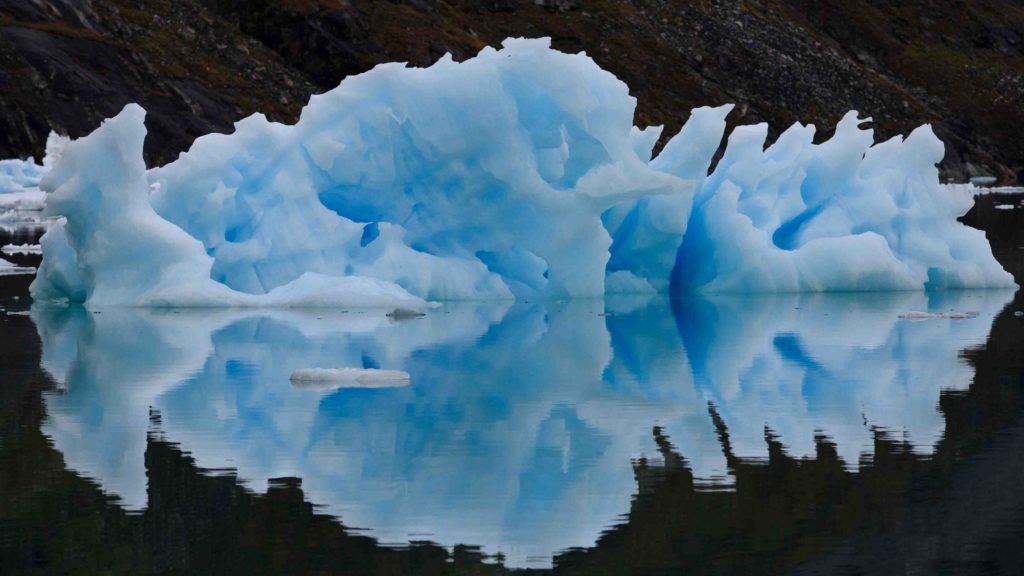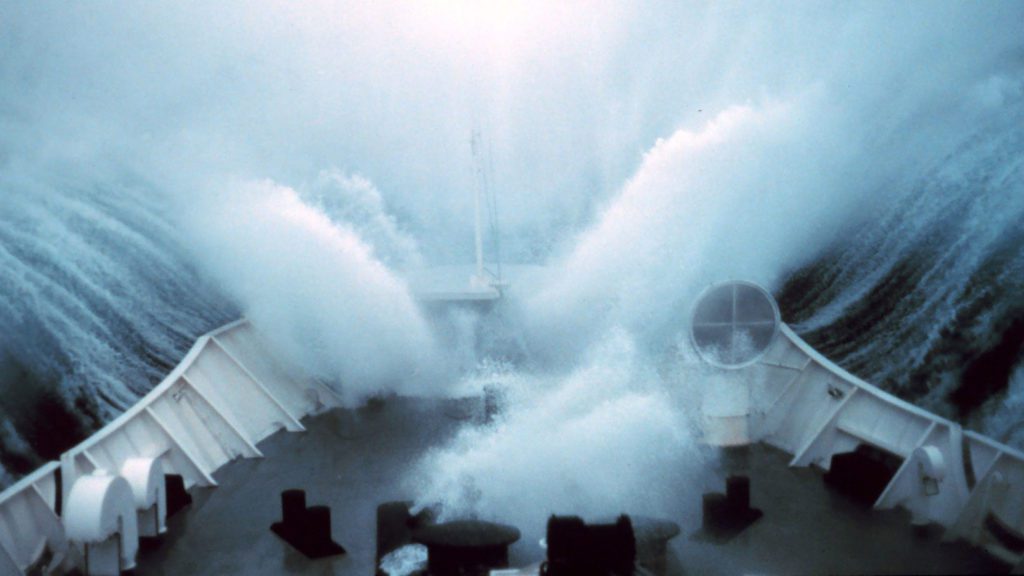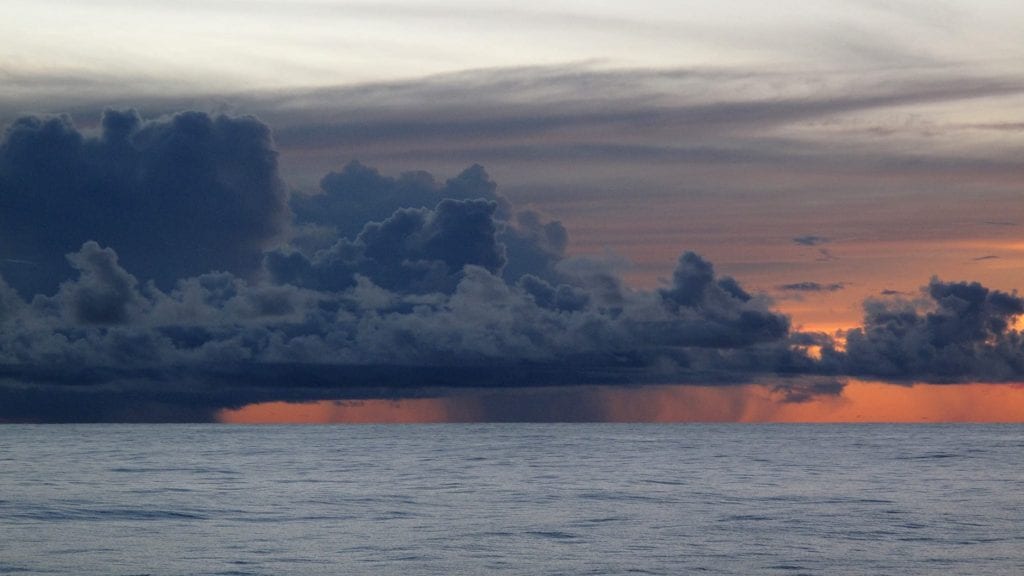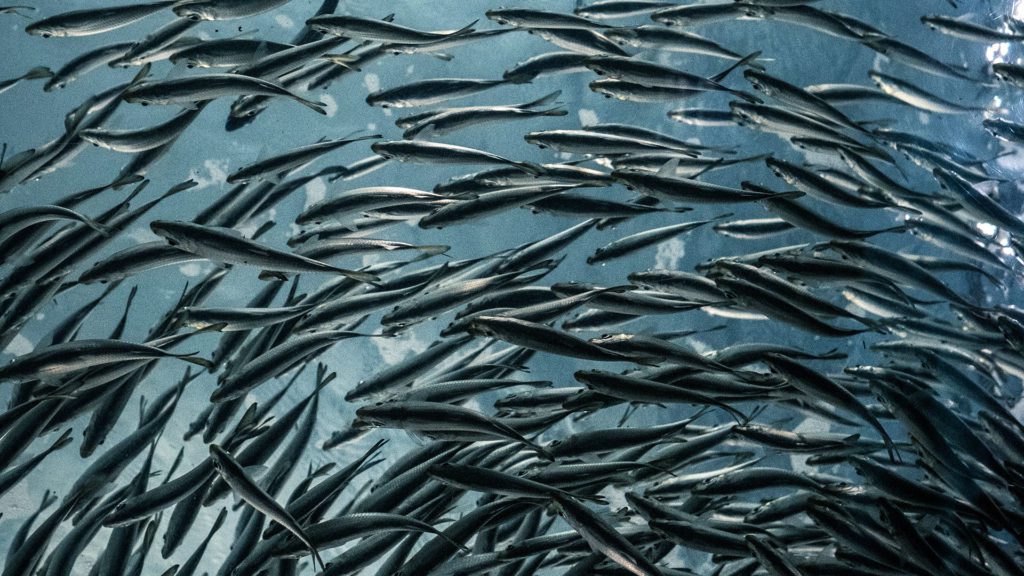Without the ocean, life as we know it wouldn’t be possible. There are a number of key reasons why.
First, the ocean is the largest source of oxygen on Earth. According to scientists, approximately half of the planet's oxygen production originates from the sea. Most of this oxygen is created in the top 200 meters (656 feet) of the ocean's surface. Within this depth, sunlight penetrates, allowing for photosynthesis to take place. Plankton, including algae and bacteria, utilize sunlight, carbon dioxide, and water to produce energy and release oxygen.
Among these tiny floating organisms, a minuscule bacterium known as Prochlorococcus stands out as a primary contributor to oxygen production. They generate at least 10% of the oxygen on the planet!
Another reason the ocean is so important for life is that it is a cradle of Earth’s biodiversity. The ocean is home to 80% of all biodiversity on Earth, hosting a dazzling array of animals, plants, and microorganisms. Every single drop of salt water teems with life. So far, scientists have identified 250,000 marine species, but estimate that this covers only two-thirds of the life that exists in the ocean.
This rich marine biodiversity is the result of 4.5 billion years of evolution. From shallow coastal waters and coral reefs to deep-sea hydrothermal vents and the abyssal plain, diverse marine ecosystems thrive under a variety of conditions.
Marine biodiversity provides invaluable ecological services to humanity. Globally, 3 billion people depend on the ocean for their livelihoods and primary sources of protein. An estimated 61% of the world's total gross domestic product comes from the ocean and coastal areas.
Finally, the ocean is a crucial climate regulator, acting as the Earth's largest active carbon sink. In fact, it stores 50 times more carbon than the atmosphere. Over the past few decades, ocean and coastal ecosystems have absorbed an estimated 30% of the excess carbon dioxide in the atmosphere from burning fossil fuels.
“Blue carbon” refers to the atmospheric carbon captured and stored by the ocean, where it can remain for thousands of years. Tidal marshes, mangrove forests, and seagrasses in coastal areas sequester half of all this carbon in plant material and sediment.
The ocean locks away the rest of its blue carbon through what’s known as the biological carbon pump. As part of the carbon cycle, billions of tiny phytoplankton at the ocean surface take up carbon dioxide from the atmosphere. When they die or are consumed by larger marine organisms, the carbon transforms into organic matter that eventually sinks to the seafloor, causing the carbon to be sequestered in ocean sediment. Scientists estimate that 25% of atmospheric carbon dioxide is sequestered in the deep sea through this process.
Despite the ocean’s enormous capacity as a carbon sink, the current pace of greenhouse gas emissions is testing the ocean’s natural ability to absorb and sequester carbon. Therefore, it is vital to reduce atmospheric carbon emissions to effectively limit the impacts of climate change.
LEARN MORE
Ocean Life
Incredible diversity exists in the ocean, from microscopic organisms to the largest animals on Earth.
Climate & Weather
The ocean plays a central role in global climate and regional weather patterns, including droughts, rainstorms, and hurricanes.
Smithsonian. With Every Breath You Take, Thank the Ocean. https://ocean.si.edu/ocean-life/plankton/every-breath-you-take-thank-ocean
Woods Hole Oceanographic Institution. Does the ocean produce oxygen? https://www.whoi.edu/know-your-ocean/did-you-know/does-the-ocean-produce-oxygen/
NOAA. How much oxygen comes from the ocean? https://oceanservice.noaa.gov/facts/ocean-oxygen.html
United Nations. Marine Biodiversity and Ecosystems Underpin a Healthy Planet and Social Well-Being. https://www.un.org/en/chronicle/article/marine-biodiversity-and-ecosystems-underpin-healthy-planet-and-social-well-being
United Nations. Stressing Oceans Sustain Livelihoods of Over 3 Billion People, Secretary-General Says. https://press.un.org/en/2021/sgsm20754.doc.htm
United Nations. Marine Biodiversity and Ecosystems Underpin a Healthy Planet and Social Well-Being. https://www.un.org/en/chronicle/article/marine-biodiversity-and-ecosystems-underpin-healthy-planet-and-social-well-being
Woods Hole Oceanographic Institution. Reef Ecosystems. https://www.whoi.edu/know-your-ocean/ocean-topics/ocean-life/coral/reef-ecosystems/
Marine Stewardship Council. Marine biodiversity. https://www.msc.org/en-au/what-we-are-doing/oceans-at-risk/marine-biodiversity
Woods Hole Oceanographic Institution. Coastal Restoration & Blue Carbon. https://www.whoi.edu/know-your-ocean/ocean-topics/climate-weather/ocean-based-climate-solutions/blue-carbon/
DIVE INTO MORE OCEAN FACTS
Why is glacier ice blue?
When sunlight shines on a field of snow, it reflects a bright-even blinding-white. But if you get a good look at the leading edge of a glacier, you’ll find that the ice inside is a brilliant blue.
What is a rogue wave?
Behemoth waves are more than just folklore. Learn the science behind these deadly swells.
What’s the difference between climate and weather?
We often hear about the weather. We also hear about climate. The two terms are related. But they are not the same thing. What’s the difference?
How does ocean warming affect fisheries?
The ocean has absorbed 93% of excess heat from human activities, raising its temperature by 1.5°F since 1901. Warming oceans impact fish migration, leading to conflicts and overfishing.

